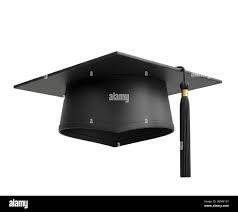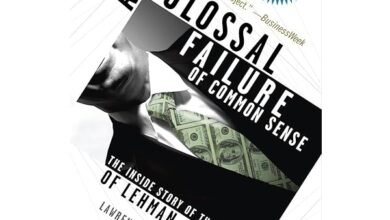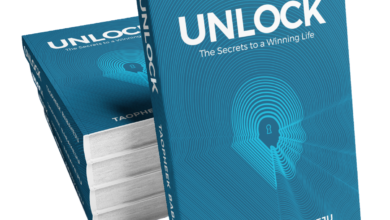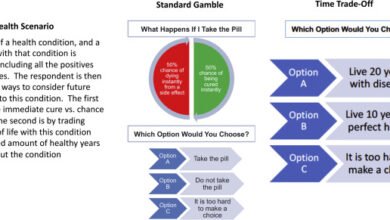The Quiet Mind of a Minimalist Scholar: Mastery Through Less

Introduction
The Minimalist Scholar is not about deprivation or austere habits; it’s a deliberate approach to learning and academic life that strips away distractions, redundant tasks, and excess possessions so that attention, time, and energy can be devoted to meaningful inquiry. Rooted in principles from cognitive science, productivity research, and proven study techniques, this mindset invites scholars from undergraduates to PhD candidates and lifelong learners to design study systems that emphasize clarity over quantity. By choosing fewer commitments and clearer goals, the Minimalist Scholar reduces cognitive load, prevents burnout, and creates space for deeper, sustained concentration. Rather than piling on tools, apps, and resources, the approach favors a handful of evidence-backed practices: focused reading, deliberate note-taking, scheduled reflection, and intentional rest. The aim is not merely higher grades or faster publication, but more satisfying, sustainable intellectual progress. This article explains how to adopt the Minimalist Scholar framework practically, ethically, and with an eye toward long-term scholarly well-being.
Curate Your Learning Inputs
Effective scholarship begins with careful selection. The Minimalist Scholar curates reading lists, sources, and learning inputs so that every item serves a clear purpose. Rather than hoarding PDFs and bookmarks, prioritize primary sources, seminal papers, and a few recent high-quality reviews. Use a simple triage: immediate relevance (read now), potential relevance (save with a short note), and unlikely relevance (archive or delete). This reduces overwhelm and makes literature reviews manageable. Curation also applies to courses, seminars, and meetings choose ones aligned with your research questions or skill gaps. For digital curation, adopt a minimal note-management system: one searchable repository with clear tags and concise summaries. Resist the urge to collect everything; the friction of making deliberate choices trains discernment and saves time during deep work sessions. When sources are fewer but carefully chosen, comprehension deepens, synthesis becomes easier, and writing advances more quickly. The payoff is not less knowledge but clearer knowledge a focused intellectual ecosystem that supports original thinking.
Design Workflows for Deep Focus
A minimalist approach to workflow emphasizes long, uninterrupted blocks of attention designed for meaningful cognitive tasks. Create a consistent daily or weekly rhythm that separates deep work (writing, problem-solving, critical reading) from shallow tasks (email, formatting, administrative chores). Use a small set of proven techniques: time-blocking, the Pomodoro method adapted for longer focus stretches, and single-tasking. Limit tools to those you actually use: a reliable calendar, one notes app, and a simple reference manager. Automate or batch shallow tasks respond to email twice daily, schedule recurring administrative chores, and reserve social media for fixed breaks. Set clear entry and exit rituals for deep sessions (brief review of goals, disable notifications, prepare materials) so your brain learns to transition efficiently. Keep your physical workspace uncluttered; a tidy desk reduces visual noise and decision fatigue. By constructing repeatable, pared-down workflows, you conserve willpower and make high-quality scholarly work the default rather than the exception.
Write Less, Write Better
Writing is central to scholarship, but more words do not equal more value. The Minimalist Scholar focuses on clarity, iterative refinement, and purposeful revision. Start with concise research questions and an outline that maps the argument before drafting. Use short, focused writing sessions with the explicit goal of producing a paragraph or a specific section rather than an amorphous “write.” Emphasize structure: topic sentences that guide each paragraph, logical transitions, and disciplined citation practices. Prioritize revision: one pass for structure, one for evidence and citations, and one for language and clarity. Keep templates for common outputs (literature review, methods summary) to speed formatting while preserving intellectual rigor. When collaborating, limit draft versions and maintain a single source of truth to avoid duplication and confusion. Embracing brevity helps communicate complex ideas more persuasively and reduces time spent on unnecessary embellishment. Over time, deliberate constraints like a maximum word target per section train you to distill thinking into precise, impactful prose.
Maintain Intellectual Health and Sustainable Habits
Sustained scholarship depends on cognitive resilience and balanced habits. The Minimalist Scholar treats rest, exercise, and reflection as integral components of research, not optional extras. Schedule regular breaks, sleep consistently, and include physical activity to support memory consolidation and creative thinking. Practice deliberate reflection: weekly reviews that assess progress, failures, and adjustments needed for your research plan. Limit multitasking and reduce constant connectivity to shield attention. Adopt simple rituals that mark transitions between work and personal time short walks, journaling, or a tidy workspace to maintain boundaries. Cultivate selective collaboration: engage with peers who challenge your thinking and provide constructive feedback, while politely declining commitments that do not align with your core goals. Finally, apply ethical minimalism: keep transparent records of data, respect authorship norms, and choose open, reproducible methods where possible. These sustainable habits create the conditions for long-term productivity, creativity, and well-being.
Conclusion
The Minimalist Scholar is a practice, not a pass/fail label. It’s a flexible framework that empowers learners and researchers to focus on what truly matters: clear questions, careful sources, disciplined workflows, and healthy routines. By intentionally reducing excess whether in reading lists, apps, meetings, or words you free mental bandwidth for deeper understanding and more meaningful contributions. Start small: curate a weekly reading list, reduce your toolset, or reserve two hours of uninterrupted writing three times a week. Over weeks and months, these modest changes compound into a scholarly life that’s more productive, more focused, and more humane. Minimalism in scholarship isn’t about doing less for its own sake; it’s about doing the right things better.
FAQs
Q: Will minimalism limit my exposure to new ideas?
A: Not if it’s applied thoughtfully. Minimalism prioritizes high-quality, diverse sources rather than quantity. Intentionally rotate reading lists and include interdisciplinary reviews to maintain breadth while avoiding overwhelm.
Q: Which tools should I keep as a Minimalist Scholar?
A: Keep only the essentials you actually use: one reference manager, one notes app, and your calendar. Avoid duplicative apps. The goal is reliable tools with clear organization, not the newest gimmick.
Q: How do I handle required but low-value tasks (administration, formatting)?
A: Batch and schedule them. Automate where possible and assign fixed time slots this prevents these tasks from fragmenting deep work.
Q: Is minimalist scholarship suitable for collaborative projects?
A: Absolutely. Clear roles, single-source documents, and minimal, agreed-upon communication channels improve collaboration efficiency and reduce misunderstandings.



